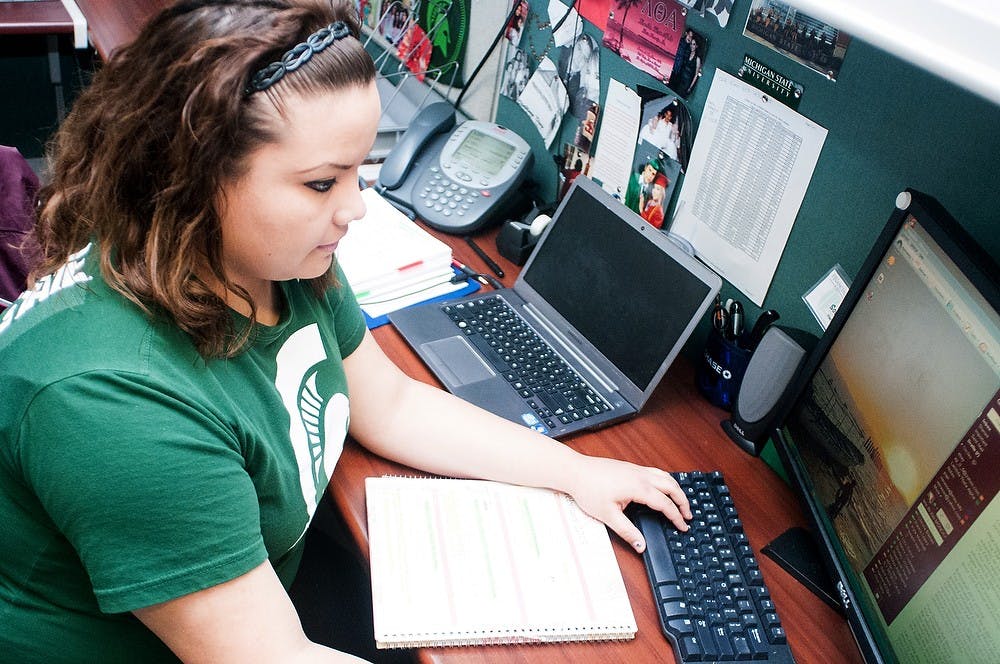As a 13-year-old girl picking asparagus in the fields of Texas with her parents, food industry management senior Sonia Viera always dreamed of working in an office.
Now, as a student advisor for the MSU Office of Financial Aid, she does it for 14 hours each week.
And although she admits having to juggle everything — school, work and loans— can be difficult at times, she couldn’t picture being at college without working, too.
“I would always say, ‘When I get older I’m going to go to college so I can be in an office and get my parents out of this job,’” Viera said.
“I’m the first one to come to college and have that stress … I’m the oldest too, so it’s on me to be a role model for my family.”
Although about 20,000 students are given paychecks by MSU each year, a recent study done by Psych Central suggests minority students, such as Viera, tend to have more stable grade when working longer hours while simultaneously going to school.
When working 15 hours or more each week, the negative correlation between GPA and hours worked was stronger for non-minority students.
For Latino and black students, this connection was different — the study saw stable grades and less alcohol use than their non-minority counterparts.
Rubén Martinez, an MSU expert in race and ethnic relations and the education of ethnic minorities, cited the high value minority students often place on their employment as a possible reason for these results.
“One could argue that finances are more critical to (minority students) and a job might be more (important) to them,” Martinez said … “Being able to maintain a steady flow of income is critical for them.”
Because Viera’s parents can’t afford to pay for her education, she said the money she gets from her part-time work is crucial, and she combines this income with loans to cover all of her expenses.
The Psych Central study also stated minority students are more likely to work extensive hours during the week than non-minority students, which Martinez said is symbolic of the importance many students put on their jobs.
“It … reflects a commitment on their part to succeed,” Martinez said.
“It’s tough to do all of that and balance all that committed to success … Those who do work long hours tend to have a higher commitment level.”
Bill Morgan, experiential learning and on-campus internship coordinator for MSU Career Services, said in order to avoid this overwhelming feeling, students should stick to 15 hours of work, in addition to class, a week.
He also said although working and studying combined can make for a hefty load, it can help students of all backgrounds manage their time productively.
“The research we’ve seen suggests that working 10-15 hours a week can help a student become more organized,” Morgan said.
“And in doing such, it actually may help them improve their grades.”
Support student media!
Please consider donating to The State News and help fund the future of journalism.
Discussion
Share and discuss “Study suggests minority students work, study harder” on social media.







